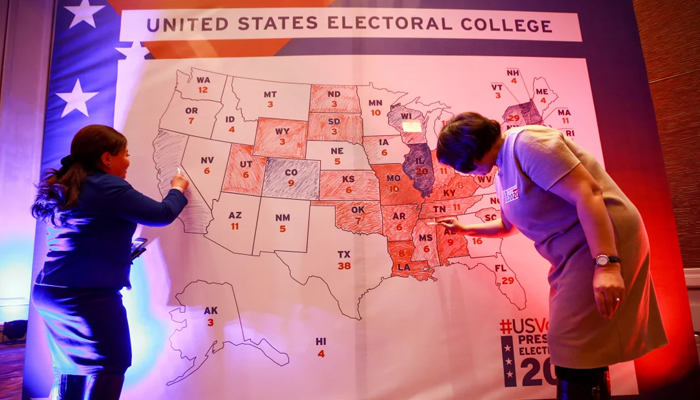
The Electoral College system for electing presidents has been disputed by the American people for some time. The people prefer to elect their rulers by popular vote in general elections every four years.
There have been five cases in which a candidate was appointed President of the United States after losing the popular vote but winning a majority of the electoral votes. However, this process is part of the US Constitution and can only be changed by amending the law.
State delegates met in Philadelphia in September 1787 for the Constitutional Convention. Among the main arguments was the debate over how the new state would elect its presidents.
The argument divided the delegates into two groups, one group advocating that Congress should have no role in electing state leaders and the other group insisting that the people not be allowed to elect the president by popular vote because they believed the people of the time would not do so. They have the necessary information or knowledge about the candidates and a president elected directly by the people would have an unnecessary amount of power that could be dangerous.
The discussion continued for several days, and in the end, the assembled delegates reached a compromise on the idea of the Electoral College.
The electors will not be chosen by Congress or by the people; Instead, states appoint neutral electors to cast actual votes for candidates.
However, the college was formed not because the delegates found it the best possible solution, but because they could not agree on anything else.
The distrust and inability to reach a conclusion can be attributed to the fact that America had just emerged from authoritarian colonial rule and they had to do everything in their power not to elect another similar ruler.
They argued over representation in Congress and could not decide whether representatives should be based on population or whether all states should be given equal representatives in Congress.
In the end, they compromised on giving each state one representative in the House of Representatives for every 30,000 people in the state and two in the Senate.
The Founding Fathers formed the Electoral College believing it would be the best possible solution to confront potential corruption in the presidential voting process.
American history reflects how voting rights evolved through amendments to the Constitution, with changes over time to address disparities between states.
The amendments gradually granted voting rights, including special provisions for women and people of color. Additionally, the Voting Rights Act was expanded in 1975 to ensure that non-English speaking US citizens could participate in elections.
